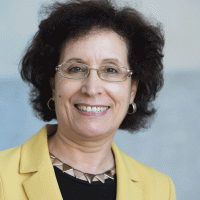Ground Truth Briefing: What Does Africa Expect of President-elect Donald Trump?
The Takeaways
President-elect Donald J. Trump has promised to shift U.S. foreign policy priorities and to reshape America’s system of alliances. While Africa did not feature in the U.S. presidential campaign, it is important to ask what this new stance might mean for Africa. On November 30, 2016, the Wilson Center’s Dr. Monde Muyangwa, Director of the Africa Program, moderated a discussion on the range of reactions Africans have had to the election of Donald Trump and an analysis of their priorities for engagement with the incoming Trump administration. Dr. Muyangwa was joined by Dr. Fatima Sadiqi, Senior Professor of Linguistics and Gender Studies at Sidi Mohamed Ben Abdellah University in Morocco and former Wilson Center Fellow, and Dr. Terrence McNamee, Deputy Director of the Brenthurst Foundation in South Africa.
Dr. Muyangwa framed the context for the discussion by noting that Africa’s absence during the campaign reflects not only on where African issues stand within the U.S. foreign policy outlook, but also the tone and tenor of this particular campaign. Yet the fact that President-elect Trump has yet to lay out a specific policy framework for Africa is not unusual for this point in a U.S. presidential transition. Nonetheless, it does mean that those with an interest in U.S.-Africa relations must extrapolate possible policy positions based on Mr. Trump’s more general foreign policy pronouncements.
While U.S. policy toward Africa has remained fairly consistent under the last three U.S. presidential administrations – centered around the four areas of peace and security, democracy and governance, trade and investment, and the promotion of opportunity and development – we do not yet know whether this continuity will remain under the next administration, as Dr. Muyangwa pointed out. Dr. McNamee suggested that continuity may indeed occur if Africa remains low on Mr. Trump’s list of foreign policy priorities, as the organs of the U.S. government dedicated to Africa may be left to operate with considerable autonomy. Yet another possibility is a deepening of the militarization of U.S. policy towards Africa. Until the full administration has been announced, including the positions of Secretary of State and the USAID administrator, there are few clear indicators of which approach will prevail.
In terms of initial reactions to the election on the continent, Dr. Sadiqi noted that there has been a range of responses among Moroccans: at one end, populist parties did not hide their joy in the press and on social media, while on the other end democratic parties did not hide their shock. Yet overall there is a general sense of surprise and apprehension, given the lack of detailed policy statements on both North and Sub-Saharan Africa. In South Africa, meanwhile, Dr. McNamee has observed a sense of “schadenfreude,” that the United States has its own challenges with democracy to address even as it promotes democratic principles in Africa and elsewhere.
Dr. Sadiqi underscored that the main concern among both Christians and Muslims in Morocco is Mr. Trump’s negative rhetoric about Muslims, such as a possible ban of the entry of Muslims into the United States, during the campaign. Many believe these statements play into the propaganda of extremists on the continent, including al-Shabaab, Boko Haram, and al-Qaeda in the Maghreb. As Dr. McNamee pointed out, many African nations have orchestrated a careful balance between their Christian and Muslim populations who have coexisted for generations, and there is a fear that rhetoric against Muslims could upset that balance.
On the economic front, many Africans are concerned about a possible slowdown in economic growth if the United States limits its participation in free trade agreements and reduces foreign aid, although trade is not a significant worry in Morocco specifically, as it is the only African country that already has a bilateral free trade agreement with the United States. It is also possible that the United States may engage in a renewed scramble for African resources as it looks to enhance its positioning in Africa, particularly vis-à-vis China, Dr. McNamee suggested.
Dr. Sadiqi also highlighted concerns about the direction of climate change and its effects on African countries that face challenges with food and water security, as well as worries about the future of human rights and women’s rights across the continent and the globe. Both speakers agreed that U.S. support for human rights may attenuate under the Trump administration.
In offering their recommendations to the incoming administration, Dr. Sadiqi advised providing support for security in addition to poverty alleviation and development, as well as enhancing civil society groups. Similarly, Dr. McNamee recommended sustained engagement on the levels where “big changes” are occurring in Africa, notably in the realms of civil society, business, and entrepreneurship.
This teleconference was livetweeted. Catch up on the discussion with the hashtag #TrumpinAfrica. Front page photo by Gage Skidmore, via Flickr. Creative Commons.
Speakers

Senior Professor of Linguistics and Gender Studies, Sidi Mohamed Ben Abdellah University, Morocco
Moderator

Hosted By

Africa Program
The Africa Program works to address the most critical issues facing Africa and US-Africa relations, build mutually beneficial US-Africa relations, and enhance knowledge and understanding about Africa in the United States. The Program achieves its mission through in-depth research and analyses, public discussion, working groups, and briefings that bring together policymakers, practitioners, and subject matter experts to analyze and offer practical options for tackling key challenges in Africa and in US-Africa relations. Read more
